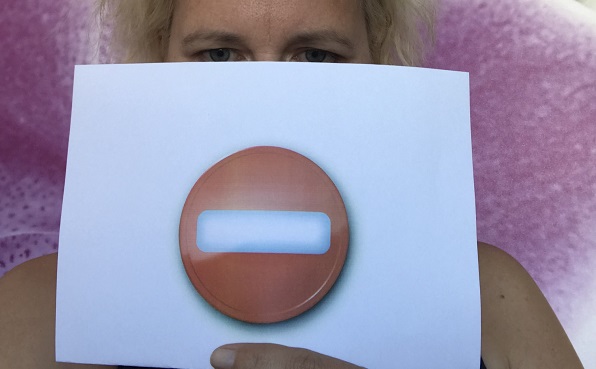For many it is undesirable and disgusting: sweat. We just start to sweat in different situations – whether in sports, when we are sick or afraid. But when, where and why are we sweating??
In a nutshell: As unpleasant as sweat may be, it is primarily an important protective mechanism for our body. It serves both as a temperature regulator and a danger-killer and is therefore an unbeatable all-round star when it comes to protecting our bodies. We will tell you in detail what it is about sweating, why we start to sweat and how it protects the human body.

Why do we sweat when it’s hot?
With the rising outside temperatures in summer, our body temperature increases – degrees by degrees. But our body needs a constant body temperature of around 37 degrees Celsius in order to function "normally and healthily". So how can the body maintain the temperature of 37 degrees even when it is in the blazing sun and sizzling in the heat at over 40 degrees? Quite simply, he starts his own air conditioning system, lets the sweat flow out of every existing pore and thereby keeps himself cool.
What happens in the body so that we can sweat?
As soon as the outside temperature rises, the nerve cells send an alarm signal to the brain. This immediately activates the sweat glands that start producing sweat. Sweat is carried through the pores to the surface of the skin, where it evaporates and cools the skin – a nice refreshment.
Why do we sweat a lot during sport??
When we exercise, many of our muscles start to move. This is exhausting and costs our body a lot of strength and energy. The result: the body temperature rises due to the exertion and we start to sweat. The body cools down again through the sweat. People who rarely play sports and are not trained start to sweat with the slightest effort, e.g. B. climbing stairs or walking slowly. Athletes, on the other hand, do not waste a sweat bead here, because the body is used to a completely different effort.
Why do we sweat a lot on hands and feet?
The human body has between two and four million sweat glands that produce several liters of sweat every day. Most of them are in the palm of your hand, on the sole of your foot and on your forehead. Under the foot we have almost 600 sweat glands per cm², on the palms there are almost 500 sweat glands per cm².
The special thing about these sweat glands is that they do not serve to cool the body, but give us a better grip when walking and gripping.
Example: When flipping through a book, it is sometimes not so easy to turn over the individual pages. If we moisten the fingers a little bit, the individual sheets stick to the fingers and we can easily skim side by side.
My evil friend, the "cheese foot"
What many do not know: sweat does not have its own smell – sweat does not stink, because it is 99 percent water. First there are the bacteria living on the skin that trap and decompose the sweat on the surface of the skin, but instead release substances that trigger the unpleasant smell of sweat. And it is well known that a large number of bacteria live on the feet. Since the sweat soaks in the socks and shoes and the smell cannot draw into the fresh air, the moment of "taking off your shoes" on a hot summer day can sometimes be an embarrassing affair.
Why do we sweat when the fever goes down??

As soon as the body perceives harmful intruders such as bacteria and viruses in the body, it immediately begins to fight them by increasing the body temperature, because viruses and bacteria prefer to be cold. In addition, when the body is warm, it can produce more antibodies that fight the pathogens as the body’s "police". Did you know that even insects and fish can get a fever when they are sick?
If the pathogens are successfully combated, the body can lower its temperature. The body’s own air conditioning system is thrown on: sweating cools the body and the temperature returns to normal.
Why do we sweat when we are afraid or excited?
Who does not know them: the moments when we are unwanted and uncontrolled with a Sweating? Whether at an important lecture, a job interview or the second we confess our love to our crush: the "sweat of fear" is literally written on the forehead, the hands are sweat-soaked. But why do we sweat in these moments, even if we are in a cooled room and are in good health?
Hormones, stress & cold sweat
In stressful situations, the body releases various hormones, especially the stress hormone adrenaline. The large amount of adrenaline increases the heart rate and accelerates breathing. The body is under high tension and is on full alert. Everything is going crazy now; the nerves connected to the sweat glands become overactive and produce a lot of sweat in no time. But not only stress, but also fear, nervousness and excitement let the body produce a high amount of adrenaline, which leads to strong sweating. The fear hormone also causes the veins to contract. The skin is poorly supplied with blood and cools down. This means that the sweat produced in the cooled sweat glands is also cold. The cool sweat of fear arises.
The evolutionary theory of fear sweat
But not only from a medical point of view, but also from an evolutionary perspective, the fear sweat can be explained: The production of the sweat is a preparation for a fight or an escape. Because fighting or running away quickly requires a lot of effort, the body cools down beforehand. So the "fighter" is well prepared. In addition, sweat has an additional defense function, because the body is more difficult to grip and hold when wet and damp.
Why do teenagers sweat especially during puberty?
Puberty brings many changes in the body and psyche. In girls, the hormone estrogen is released, which causes the physical changes Mrs causes. The boys produce a particularly large amount of testosterone, which triggers physical development into a man. Due to the increased hormone balance, the adolescents are in a constant state of tension. The adrenaline rush keeps adolescents and especially their sweat glands busy.
Why do dogs actually sweat over the tongue and not like people over the skin?
Unlike humans, dogs have no sweat glands in their skin. They mainly cool their body temperature via the tongue and breathing by exhaling the warm air through the snout and breathing in cool air through the nose. The faster the dog breathes, that is, panting, the cooler it can hold. When a dog sweats, it breathes about 10 times faster. The dog only has normal sweat glands on the paws, which also serve to regulate the temperature. Dogs can also get real cheese feet!
Off on vacation: With the summer and vacation quiz
In our free summer and vacation quiz to print out you will find more exciting information on various topics related to summer, sun, vacation & Co. Have fun!
RELATED ITEMS
-

Problematic math – why actually?
Many children have difficulties in math, often it becomes a problem subject. But why is that and what can parents do? mathematics…
-

Why sport is important in kindergarten
The NetMoms editorial team searches for new, exciting topics that inspire and touch your heart every day. It also delivers…
-

Why many children don’t learn to swim – the German school portal
Despite swimming lessons, 60 percent of children are still non-swimmers at the end of fourth grade. The number of drowned children is increasing dramatically….
-

Very often the question of “limits” is the question or rather the belief or the statement “My child is constantly testing his limits” “You have to be consistent…
